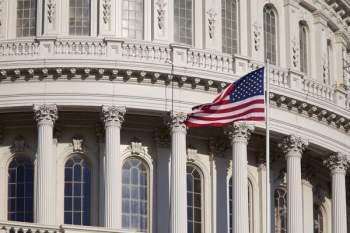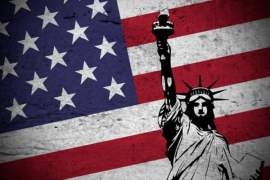
Third Amendment

Popular In Constitution
Purpose Of Lifetime Appointment And Pros And Cons Enumerated Powers Bicameral Legislature Background Article 3 Of The Constitution We The People 1st Amendment Who Wrote The Constitution Judicial Review Equal Protection Clause 5th Amendment 10th Amendment Three Fifths Compromise
The Third Amendment of the Constitution of the United States is one that arose directly out of the conflict with Britain that resulted in the American Revolution. Before the Colonies successfully gained their independence, Britain imposed the Quartering Act, which forced American families to take in British soldiers into their homes and provide them with room and board.
The British imposed themselves on the private dwellings of families, and often took advantage and abused the extent of this imperialistic provision created by the British. This was evident specifically during the French and Indian War, when members of the British military would force families into providing them housing and would take quarters in private homes without authorization or permission granted form the owners. The Third Amendment would come into creation as a way to protect these circumstances from occurring again by prohibiting the practice under United States legislation.
The Third Amendment explicitly states, "No
soldier shall, in time of peace be quartered in any house, without the consent
of the owner, nor in time of war, but in a manner to be prescribed by
law." Arising from previous tensions created by the Quartering Act and
citizens of the Thirteen Colonies, the Forefathers of the Constitution took it
into consideration and barred the practice by law.
At the time,
the illegal and forceful quartering of British soldiers was a form of
oppression and tyranny by the British Empire, as was deemed an outrage by
American citizens. It was even transcribed in the United States Declaration of
Independence as one of the grievances against the King. They would view this as
an invasion of privacy and trespassing on private property, which was
considered as unlawful and abusive in the eyes of the Colonialists.
However, it cannot be denied that the Third
Amendment is one that has outlived its purpose as far as its application in
modern times is concerned. The inclusion of the Third Amendment is directly
associated with the time period in which i was written and has not been applied
or enforced, simply because the necessity has never arisen since then.
The Third Amendment has little, if any, relevance or purpose today. However, in the early 1980s the Third Amendment was used in a court case regarding the housing of National Guard members that were employed during a strike by New York State correction officers. Many of the correction officers were evicted from their employee housing in order to accommodate the influx of the National Guard. The matter was brought to trial in the court case Engblom v. Carey, in which the courts deemed it that such action was protected by the Third Amendment because the National Guard is a military establishment and its members qualify as soldiers.
This would be the first and last time the Third Amendment would be employed since the late 1700s. Even though the Amendment can be considered obsolete, it still is important as a major piece of legislation that existed to oppose tyranny and unjust treatment of American citizens.



















